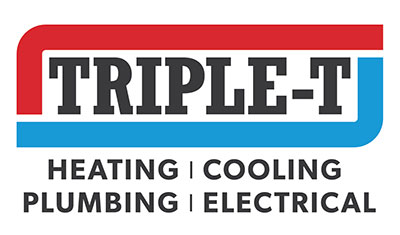How to Choose Between a Heat Pump and an Air Conditioner
Adjusting your heating and cooling regimen to keep your home comfortable becomes a top priority when the seasons change. Whether you’re battling the Utah summer heat or contending with another snowy winter, the right heating and cooling system is essential. But should you choose a heat pump or an air conditioner? Here’s everything you need to know about these systems to help you make an informed decision for your Utah home.
What is a Heat Pump?
A heat pump is a versatile HVAC system capable of both heating and cooling your home. In the summer, it operates like a traditional air conditioner to remove heat from your home. But unlike an air conditioner, a heat pump can operate in reverse to provide heat during the winter.
A few varieties are available:
- Air-source heat pumps transfer heat between your home and the outside air.
- Geothermal or ground-source heat pumps exchange heat with the ground or a water source.
- Ductless mini-splits function like an air-source heat pump, but wall-mounted indoor air handlers eliminate the need for ductwork.
How Does a Heat Pump Work?
Heat pumps transfer heat with refrigerant and electricity rather than generating it from a fuel source. In the summer, this process extracts heat from inside your home and releases it to the air or ground outside. In the winter, an ingenious reversing valve allows this transfer to occur in reverse, pulling heat from the outside air (or ground in the case of geothermal heat pumps) into your home. The ability to cool as effectively as an air conditioner, while also providing wintertime heating, makes heat pumps popular among many Utah homeowners.
How Efficient are Heat Pumps?
The cooling efficiency of heat pumps and air conditioners is measured by its seasonal energy efficiency ratio (SEER). Both devices must meet the same federal efficiency guidelines. You can also find AC and heat pump models far exceeding the mandated minimums. In this way, heat pumps and air conditioners are equally efficient.
However, the heating efficiency of a heat pump in the winter depends on the outdoor temperature. In extreme cold, air-source heat pumps require a supplementary heating system to meet demand. At these times, energy costs exceed that of a traditional gas-fired furnace. Keep in mind that geothermal systems maintain their efficiency regardless of the outdoor air temperature because underground temperatures remain far more stable.

Air Conditioner Pros and Cons
When the summer heat sets in, air conditioners are the go-to system for maintaining home comfort. Consider the benefits and drawbacks of choosing an air conditioner for your cooling needs.
Pros
- Effective cooling: Air conditioners are highly efficient at cooling a home’s interior, providing relief from the heat.
- Wide variety: AC units come in many forms to fit any home size or budget, from window and portable models to central air conditioning systems.
- Familiarity: Most people are more familiar with traditional air conditioner technology than heat pumps.
- Lower cost: Swapping out an old central air conditioner for a new one costs less than installing a heat pump.
Cons
- Cooling only: Air conditioners can only remove heat in the summer. You’ll need to install a separate heating system for the winter.
- Maintenance: AC units require spring tune-ups to ensure efficiency and prolong their lifespan. Then, your separate heating system needs to be maintained in the fall, doubling your maintenance requirements.
- Incomplete solar panel compatibility: If you have solar panels, you probably want an all-electric HVAC system. However, air conditioners usually pair with natural gas furnaces because electric furnaces are notoriously expensive to operate. This prevents you from maximizing your solar panels’ capabilities in the winter.
Heat Pump Pros and Cons
Heat pumps stand out for their versatility and efficiency. Their dual function makes them appealing, but they still have advantages and disadvantages worth considering.
Pros
- All-in-one system: Heat pumps can be used for both heating and cooling, making them a versatile year-round solution.
- Ductless options: Mini-splits are praised for being quieter, less intrusive, and more permanent than window AC units.
- Environmentally friendly: Heat pumps have a smaller carbon footprint than systems that rely on fossil fuels, especially when coupled with solar panels.
- Less maintenance: In general, heat pumps are less complicated to maintain than separate heating and cooling systems.
Cons
- Higher initial cost: Air-source heat pumps cost more than a traditional air conditioner but less than an AC/furnace combo. Geothermal heat pumps have a much higher purchase and installation cost because of the extensive groundwork required.
- Limited performance in extreme cold: While cold-climate heat pumps are more efficient than ever, temperatures below -13 degrees strain the equipment and reduce heating performance. A built-in supplemental heat source will keep your home warm, but you’ll notice higher energy bills.
Heat Pump or Air Conditioner: What’s the Best Choice for Your Home?
Choosing between a heat pump and an air conditioner depends on your heating and cooling needs, climate, and budget. In Utah, where both heating and cooling are required, and prolonged deep freezes are rare, a heat pump might be the more economical and efficient choice, especially if you have solar panels. However, if you prefer a traditional HVAC system, an air conditioner paired with a gas-fired furnace may suit your needs just fine.
Prioritize Comfort with Triple T Heating, Cooling, Plumbing & Electrical
Triple T is here to make your home comfortable all year round. With 50 years of experience and a dedication to honesty, integrity, and respect, our family-run business is ready to help you make the best choice for your heating and cooling needs. To request an HVAC installation estimate, please contact us at 801-798-7711 if you live in Utah County or 435-275-4011 if you’re a Washington County resident.


